The Csmarits family from Maria Alm am Steinernen Meer (Austria)
Angi Csmarits is a 15-year-old pretty and bright teenager from Maria Alm (in the Salzburger Land Region in Austria), who has been affected by epilepsy since she was ten years old. She is the oldest of 3 siblings. Alex and Andreas are her younger brothers. Angi is currently seizure-free. Nevertheless, for her own safety and because her parents can then also sleep peacefully, she has been using NightWatch to monitor her sleep every night since the end of 2019.
Angi’s biggest dream is to become a police officer – something she dreamed of as a child. Whether this is possible with epilepsy (because of the use of firearms) remains to be seen when she is seizure-free long enough. Her second career wish is to become a nurse.
We have to tell Angi’s story in detail because it should encourage young people and parents to deal openly and actively with epilepsy and to advocate for very good and trustworthy medical support, comprehensive counseling, e.g. through epilepsy counseling centers, as well as for modern sleep monitoring with wearables. The story also impressively shows how important and strengthening it is to stick together as a family. That is why we asked the Csmarits family if they would like to become Epilepsy NightWatch Ambassadors for Austria and they agreed. If you have a question about epilepsy or NightWatch, you are welcome to email the family, contact details below.
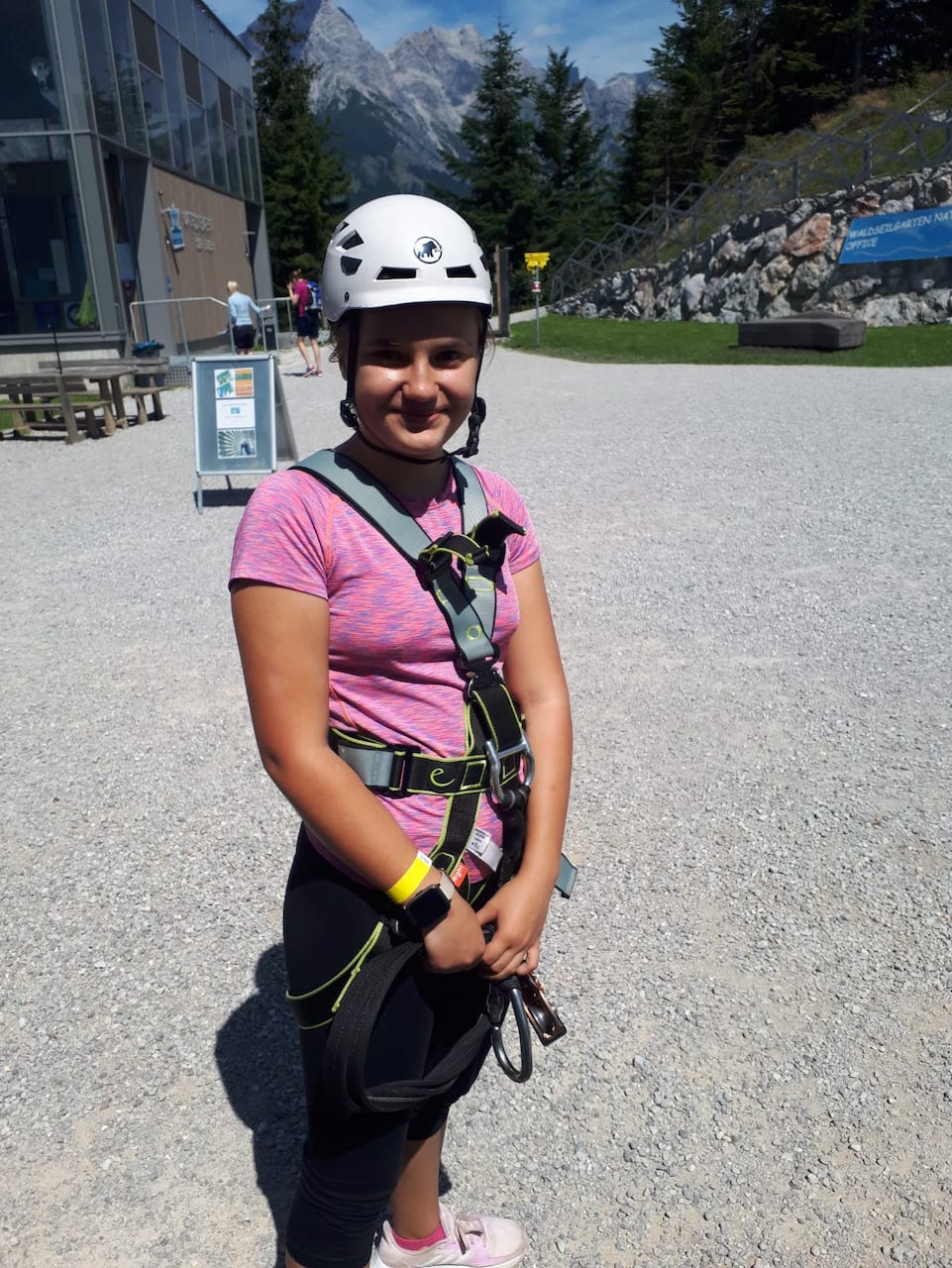
The first epileptic seizure
Febrile seizures in a baby, sound familiar? Then, for years, a completely normal life. Suddenly, at the age of ten, tics and stares – out of nowhere. The first diagnosis in 2017: absences epilepsy and medication with extensive side effects. In 2018, despite medication, the first epilepsy seizure was not consciously experienced, which Angi cannot remember to this day, as well as many other seizures. Worried parents, distraught siblings, an insecure child – “it was only after 3 days that she was more or less normal again”, says her mum Michaela and lovingly embraces her daughter with this impressive memory.
Then began the frequent sessions with the doctors and the search for the right medication. “After the febrile seizure, we took her to the hospital. The ward nurse said she was just having a heat attack and labeled me hysterical,” the mum recounts “it was only when she seized in the hospital that they believed me.”
The adjustment with the medication turns out to be difficult and the side effects put pressure on the teenager’s psyche and also do not suppress the seizures. Keppra (Levetiracetam), Lamictal, Buccolam as emergency medication.
Angi had frequent seizures, e.g. also during altar serving at a church wedding while taking up the collection. “Luckily, there was a good friend in one of the pews who caught Angi in time before she would have crashed on the hard stone floor. Luck of the draw” says dad Markus with a loving look at his daughter.
“Luckily”, Angi’s parents – Markus and Michaela – have extensive experience with epilepsy, having been affected by epilepsy themselves since childhood. Michaela is seizure-free today, Markus rarely has seizures – both will be dependent on AED (anti epileptic drugs) for the rest of their lives and take taking it very seriously. That is why they continue to search for the solution that will permanently help their daughter achieve the freedom from seizures they had hoped for, because despite the treatment they had started, Angi continued to experience epileptic seizures. This also led to the girl having frequent sick leaves, missing school, having to repeat a year at school. In retrospect, all this is not so difficult – however, when you are in the middle of these difficult situations, it often seems almost impossible to cope.
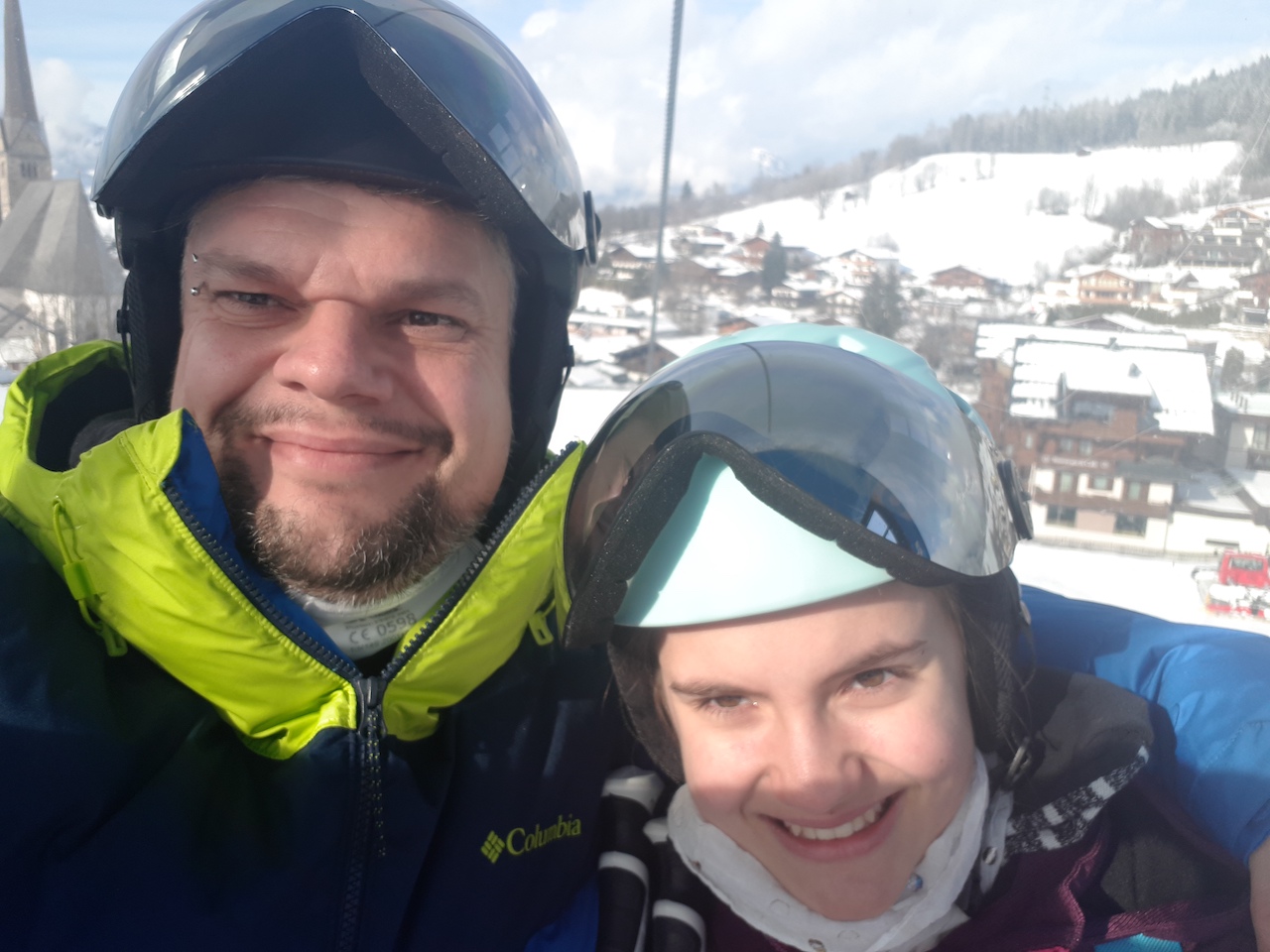
NightWatch in use since 2019
In 2019, when the seizures did not subside, especially at night, Markus and Michaela independently started looking for night-time monitoring. The Csmarits family recalls “At the hospital, we were told that you cannot die from epilepsy. Even in response to our insistent inquiries, our concerns were not addressed at the time.” The parents talked to the attending doctors about night-time monitoring but were not taken seriously at first. In the meantime, this has changed – today everything is talked about more openly and modern seizure detection is becoming established.
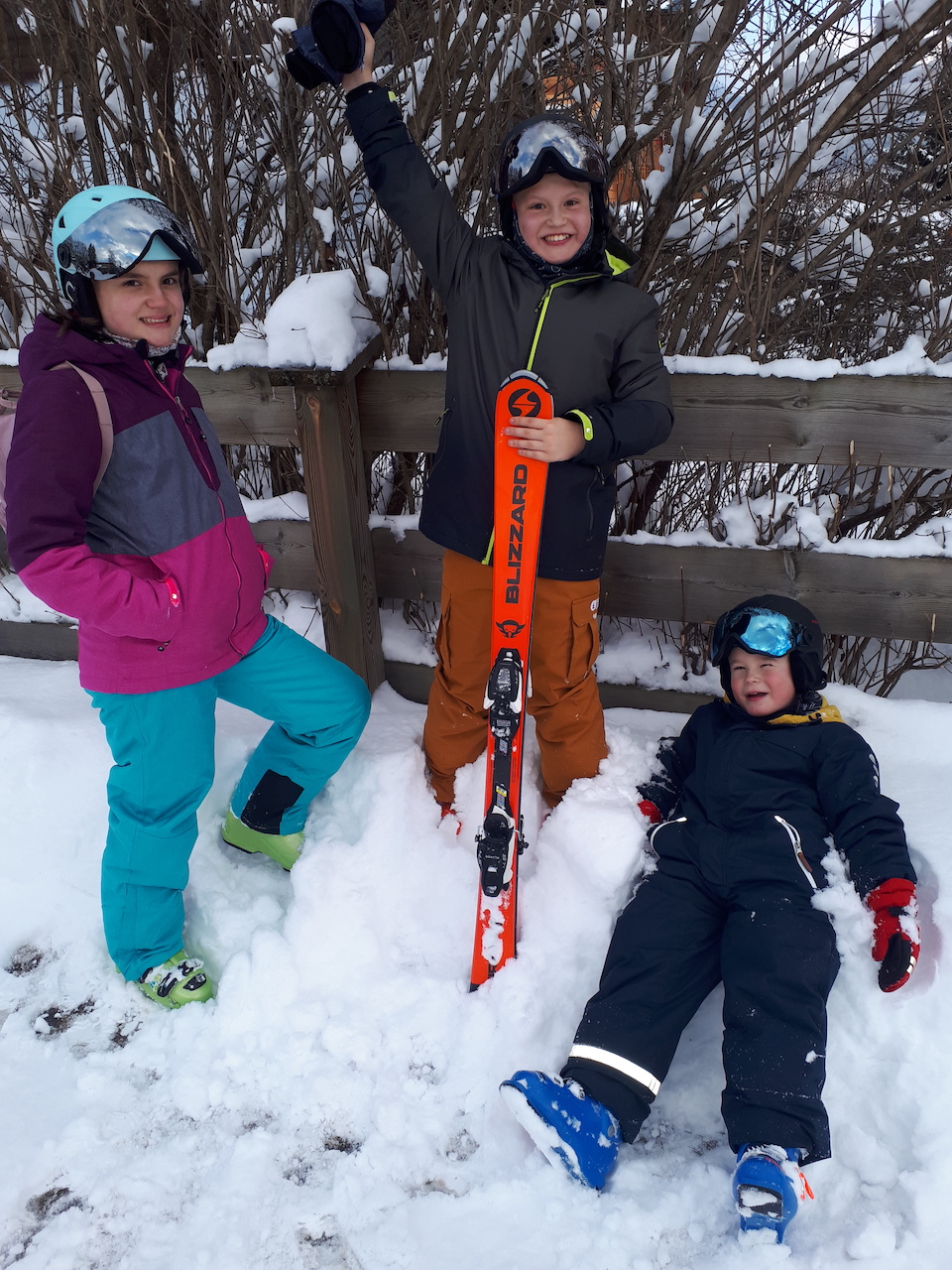
Markus Csmarits: “We are members of a self-help group for epilepsy on Facebook, there we read about NightWatch. We then entered NightWatch as a term on the internet and only came across the manufacturer in 2019 after a laborious search – at that time NightWatch was not yet so well known. The epilepsy counseling center in Graz with Birgit Pless also gave us a hint. When we had everything together and called the manufacturer, we were very well looked after and everything was very uncomplicated. We talked to the neurologists about NightWatch – they didn’t know about it at the time. We applied to the ÖGK (Austrian regional health insurance) for reimbursement, but it was rejected. We have now submitted a new application and hope that it will be approved. NightWatch has been in use every night since 2019. We have now learned that the ÖGK and the BVA now allow the reimbursement of costs for NightWatch – we think that’s great”.
Michaela Csmarits: “At the beginning, Angi didn’t like it at all, but because we were so emphatic about it, she got used to it and now she also appreciates that she feels safer and we feel safer too. We know that when NightWatch triggers an alarm, we have to keep a closer eye on Angi – it often shows that she is particularly stressed by something, has slept less well or something is perhaps not quite right. She also has a headache or smells a bit like acetone – these are all signs that an epileptic seizure could be brewing. NightWatch rarely has false alarms, but when there are alarms, we pay better attention to our girl. And the siblings are also much more sensitive with their sister when NightWatch has given an alarm – it’s like the whole family has special antennae out then.”
“We never give up!”
“We never give up” – that is the motto that drives parents Michaela and Markus Csmarits as they cope with life and that binds the whole family together. This is also the guiding principle why the parents wanted to get another medical diagnosis in 2020 because Angi’s seizures were not getting any better. Years of worry, years of uncertainty, and also fear of losing the child.
In 2020, when Angi was about to turn 13, they contacted the Landesklinikum Salzburg (Salk) and made an appointment for a 24-hour EEG. Angi agreed to be hooked up to an EEG alone 24 hours a day from Monday to Friday.
“When we arrived at the car park of the hospital and the child got out, I realized that it was about to tip me over. And that’s what happened. She had a seizure next to me and I was just able to catch her and somehow put her in the boot of my company car, I called and Angi was then taken directly from the emergency room to the monitoring and at 04:00 in the morning they started with the EEG. From that point on, after the EEG, the medication could be adjusted properly and since then Angi is doing much better,” reports dad Markus.
With the extended diagnosis, they are now being cared for in good coordination at the local clinic and with local doctors – and the family emphasizes that they are lucky to have good local care nearby. “On the whole, we are satisfied with the neurologists, and besides, our motto is “We never give up”, and so we manage quite well together,” said the parents.
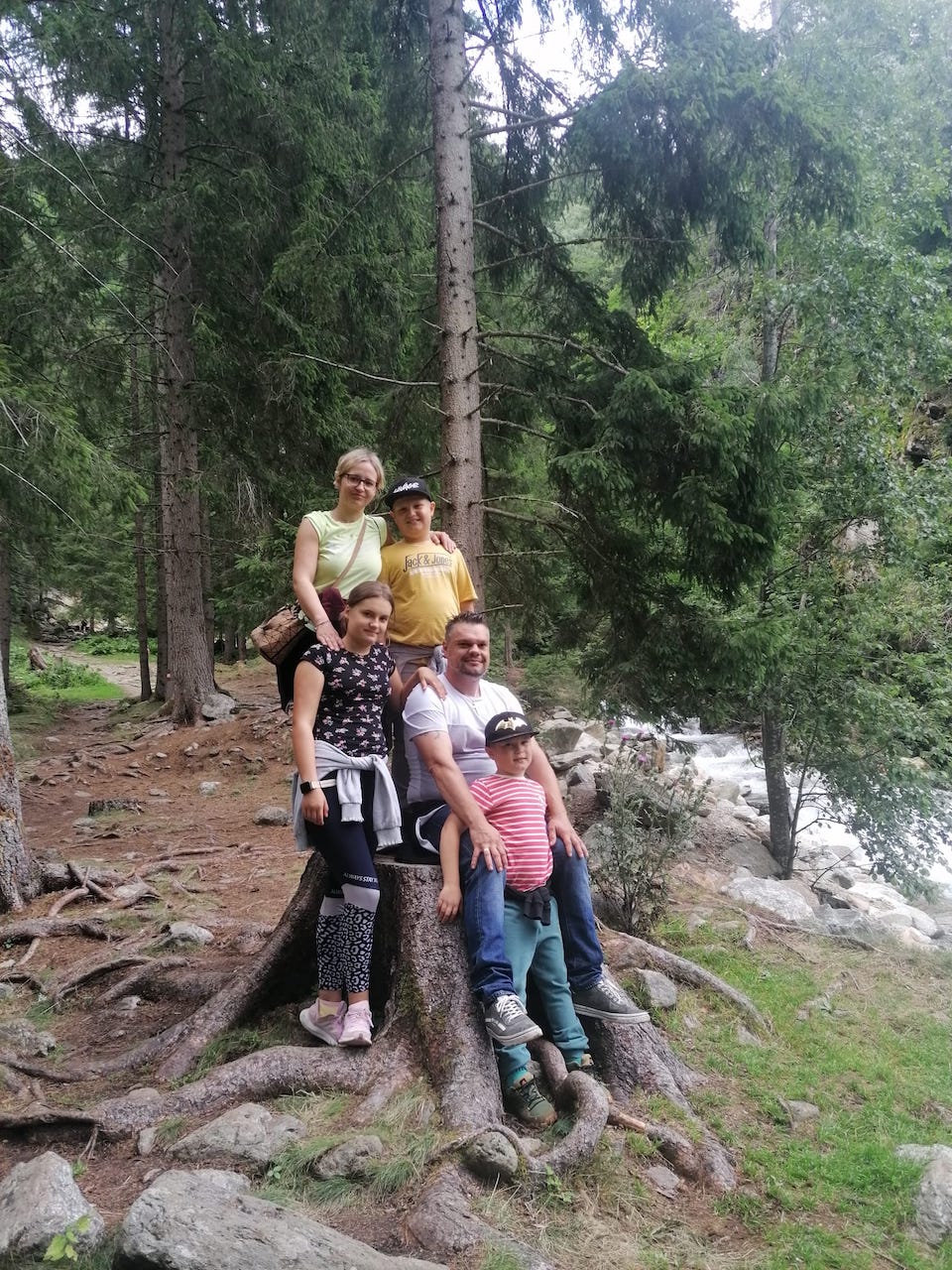
Small tests for everyday life with epilepsy
“Once I asked Angi to clean out the dishwasher and then she so dreamily put the plates somewhere and somehow didn’t do anything anymore and then I immediately knew that I had to ask her “Who are you? Where are you?” to know if she is still responsive or if she’s about to tip over,” says mum Michaela. “Markus also does simple neurological tests with her – he copied them from a neurologist, namely “Please bring your finger to your nose”, and if the finger lands far away from the nose, we know that a seizure is approaching, and the boys also always watch their sister carefully – so we all help together to make epilepsy part of our lives and to integrate it into everyday life. We talk openly about everything – we just deal with it. Today, fortunately, the world is more open and you can talk more openly about everything – in the past, when I was a teenager, they wanted to exorcise epilepsy – fortunately, I didn’t have to go through that just now. We think that talking and being open is the better option – then you can solve everything,” said the parents.
Even at the age of 15, Angi goes to bed every night at 7 p.m. – she needs the sleep, she knows that herself by now. “Even though my mum suffered from epilepsy herself in childhood, she was very tense at the beginning. When they diagnosed me with epilepsy, she was really stressful – now she’s a bit more chilled out” says Angi. “I understand my mum better now – she was very worried and at the beginning, she bit the bullet because nobody believed her that I had epilepsy. For me, it was totally annoying how much my parents worried, but today I’m glad that they were so involved and worried – now I understand it better. My best friend Jojo at school also has epilepsy – I always talk to her and everyone at school knows about it and supports us.”
“It is very important to be open about epilepsy and to integrate the environment – it can happen to anyone and it is important that the children take part in normal life and it is also very important to protect the children, for example at night through NightWatch,” says Michaela Csmarits.
Young people with visions
“I definitely want to get my moped driving license,” says Angi, “if the doctor gives me the OK. Unfortunately, I’m not allowed to do some things because of my epilepsy, like going swimming alone with my friends – no one allows me to do that, or I’m not allowed to go on roller coasters, even though I really want to. My favorite hobby at the moment is climbing, I go climbing indoors and outdoors. I’d like to take part in the HKM that’s the Hochkönigman 2022 – a competition right here with us and of course I’d like to win.”
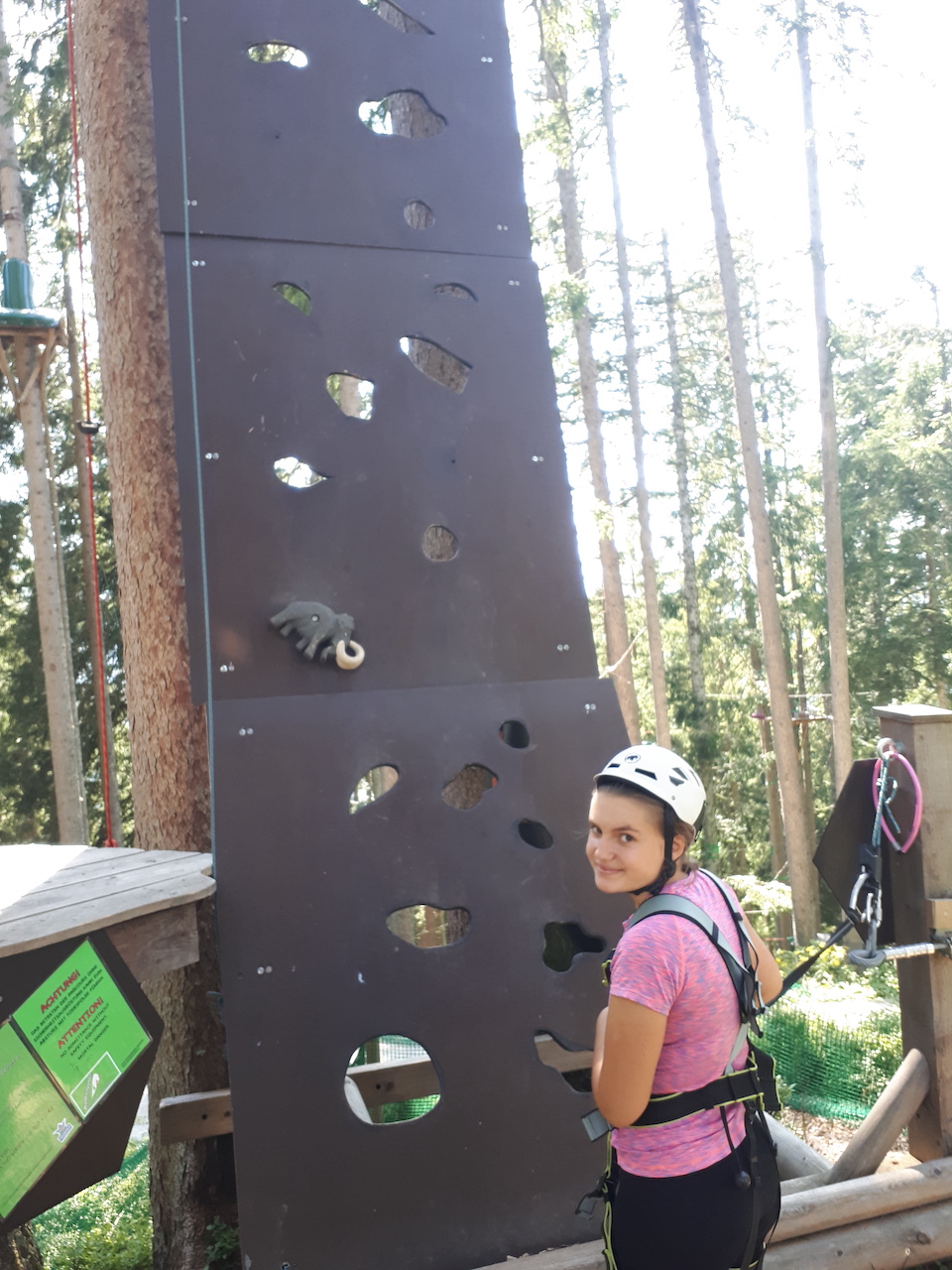
Eventually, it will get better
“We never give up!” is a motto we can urge all parents to adopt in order to achieve the best for their children’s care. The story of Angi and her parents illustrates how important it is to be completely open about epilepsy and have faith in your children and trust that things will get better eventually. It does get better, in most cases, it just takes time.
“Some people have called me heartless or call me heartless because we deal with epilepsy in a practical way – we are compassionate but we know what to do when our daughter has a seizure or when someone has an epileptic seizure – we have just learned to deal with it. We talked to our daughter about the seizure every time, so that she knows what happened, because she can’t remember it, and then she herself wanted to know,” says Michaela Csmarits.
Markus Csmarits adds: “And we are very grateful that NightWatch exists, it is an easy-to-use tool that provides security. The GSM module is also super and works great.”
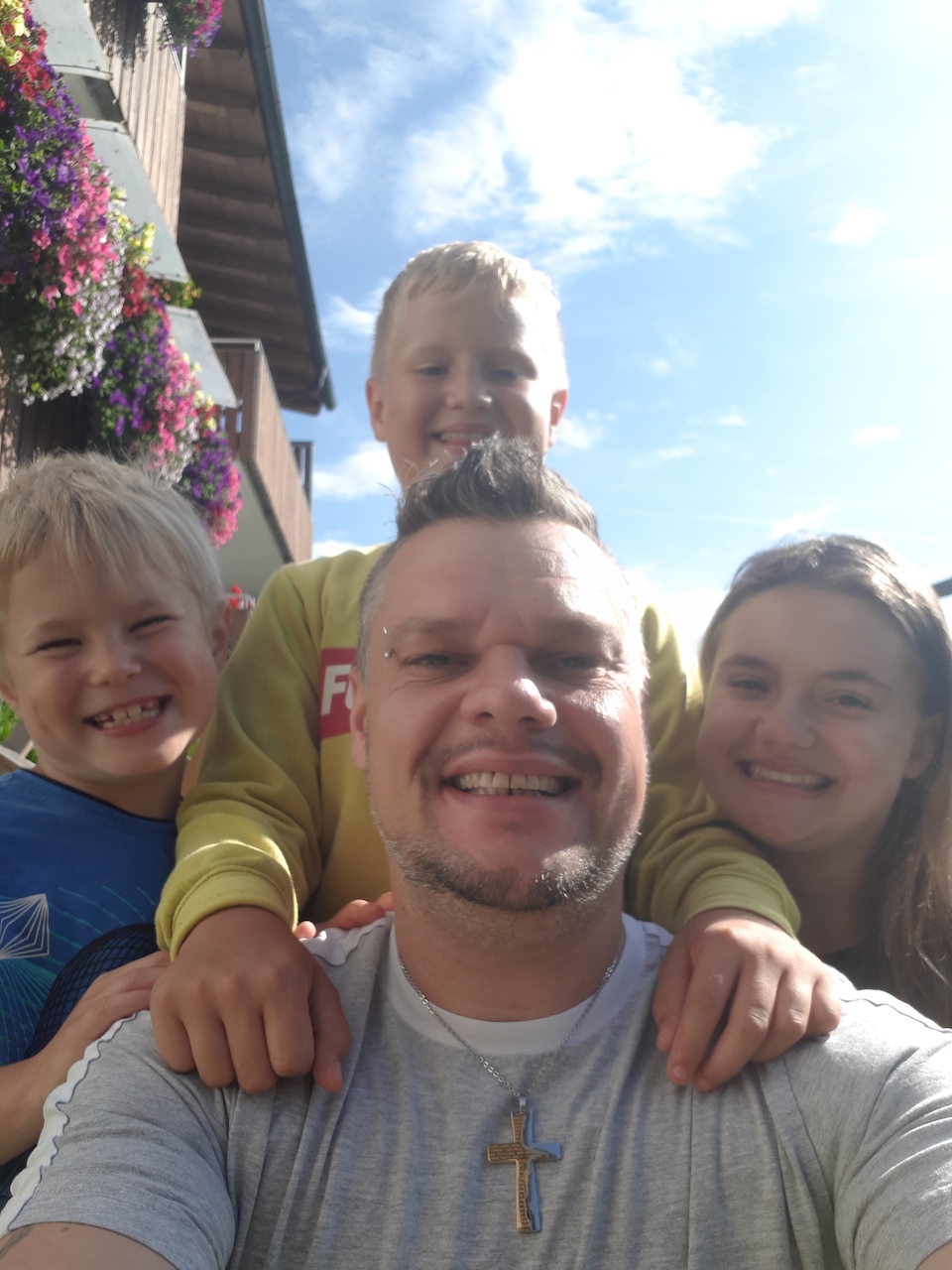
And the Csmarits family’s tip to neurologists: “Doctors should take into account that not only the patient and the diagnosis are in the foreground, but also the whole family, who have to organize life and who love their children. We think it’s great when neurologists and doctors recommend NightWatch and when epilepsy is explained and taught at school. We think it’s important that doctors raise the issue that you can die from epilepsy – so that people talk about it openly.”
“You can’t always live in the shadows, you also have to get back to the sunny side” says Markus Csmarits.
Contact Familie Csmarits: epi.csmarits@gmx.at
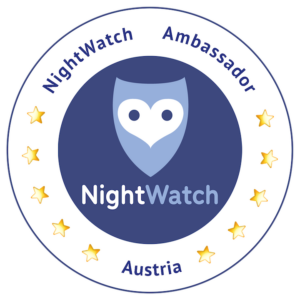
A NightWatch Ambassador story by Birgit-Elisabeth Langen